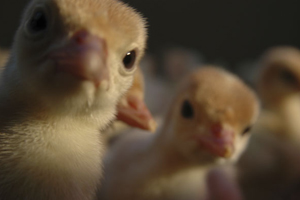Washing eggs with Bac-D influences turkey poult performance

The major factor facing the commercial poultry industry today is the cost of feed. Breeding companies have put great emphasis on selecting their lines for rapid growth and low feed to gain to increase the efficiency of production.
Even though genetics have made drastic differences in growth parameters, evident from the last 45 years of genetic selection, producers still employ other methods to help birds preform more efficiently including; feed additives, temperature, incubation, ventilation, hatchery sanitation, and egg disinfection.
Bac-D is a novel disinfectant, which is currently being used as a wound wash for humans and animals. The product utilises benzalkonium chloride, a well-studied quaternary ammonium compound, which has been generally regarded as safe (GRAS), and effectively used as a human first aid antiseptic for many years.
The objectives of this trial were to determine the effects of Bac-D on egg conductance, hatchability, body weight, and feed conversion (FC) in turkey eggs and poults. Turkey eggs were washed with Bac-D then incubated under standard conditions while recording egg conductance and hatchability. Body weights were measured at hatch, 21, and 42 days.
The results showed that egg conductance, hatchability, or body weights of chicks hatched from Bac-D washed eggs did not differ significantly from water washed controls. However, mean feed conversion was significantly lower in Bac-D poults (FCR= 1.538) compared with the control birds (FCR=1.601) at 42 days.
The improvement in FCR may be due to altered gut micro flora resulting from the Bac-D egg sanitisation. The reduction in FCR will be of significant economic impact to poultry producers.
Source Zachary Lowman and Carmen Parkhurst, North Carolina State University, Raleigh, NC, USA
Proceedings of the 2014 International Poultry Scientific Forum, Atlanta, GA, USA












